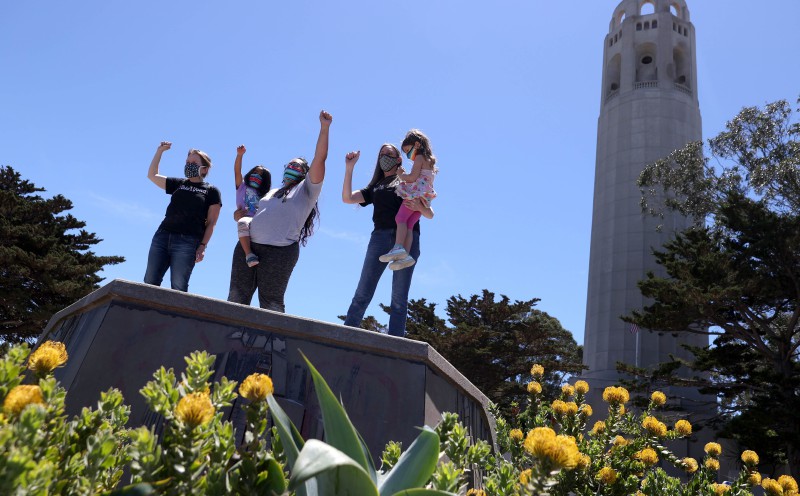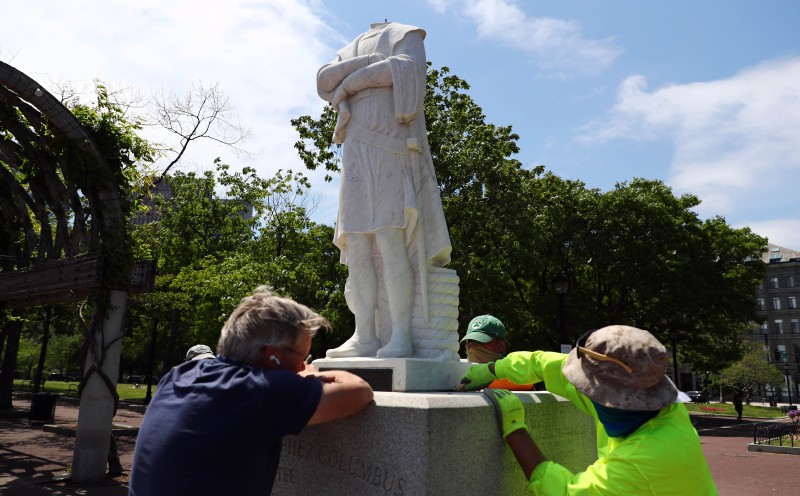 |
| Star-studded study group: Sunway University students studying at the
communal areas on their campus accompanied by cardboard cutouts of
celebrities like Nicol David and Ed Sheeran. — ART CHEN/The Star | | | | |
Colleges and universities take own initiative to make campus safer
It’s all systems go for the country’s higher education institutions as they wait to welcome students again after face-to-face learning came to a halt when the movement control order (MCO) was announced on March 18.
Both private higher educational institutions (IPTS) and public higher educational institutions (IPTA) have taken the necessary safety precautions and made arrangements for the return of their students.
They are now waiting for the related standard operating procedure (SOP) from the Higher Education Ministry, which is expected to be released soon.
“We have prepared the documents. They are currently pending approval from the Prime Minister’s Office to be released,” a ministry official told The Star yesterday.
Malaysian Association of Private Colleges and Universities (Mapcu) president Datuk Dr Parmjit Singh said its members had taken precautionary measures to maintain the safety standards of its campuses and facilities since the start of the pandemic.
“We are fully prepared to open and are just waiting for an official announcement to see how operations will be managed because so much depends on the ministry’s SOP,” he said in response to Senior Minister Datuk Seri Ismail Sabri Yaakob’s announcement on Wednesday that the National Security Council has approved the ministry’s proposal to reopen the institutions.
Ismail Sabri said the country’s Covid-19 outbreak had stabilised and the reopening of these institutions would include allowing foreign students to return.
National Association of Private Educational Institutions (Napei) president Assoc Prof Elajsolan Mohan said the IPTS had ensured that the learning environment was safe.
“We are ready and are following international best practices because we have many international partners. We already have measures in place. The security and safety of students will continue to be our top priority,” he said, adding that sanitation activities had been carried out.
He said the institutions had been looking forward to resuming classes because they were concerned about some “technologically disadvantaged” students who were unable to access certain online classes due to the lack of Internet connectivity.
Its members will also allow staff to alternate between coming to campus and working from home while students can opt for blended learning (a mixture of face-to-face and online learning).
“One way to ensure crowd control on campus is to let students who have to commute and those in Sabah and Sarawak to use remote learning,” he said.
He added that institutions must address the issue of student assessment resulting from the difference in learning methods over the past four months.
Sunway Education Group’s chief executive officer Elizabeth Lee said students would be returning to the campus in stages this month.
And they will be greeted by some “fun social distancing companions” like Henry Golding, Datuk Lee Chong Wei, Datuk Nicol David, Chef Wan, Ed Sheeran, BTS’ Jungkook, Rowan Atkinson and Jack Ma – in the form of cardboard cutouts.
She said the “social distancing companions” placed on seats around campus would be effective in discouraging people from sitting too close to each other.
“Instead of the usual ‘X’, the cutouts of well-known personalities, which have been placed strategically at communal study areas, double up as fun photo props for students to take selfies with their favourite celebrities.”
Taylor’s University School of Food Studies and Gastronomy head Siti Ramadhaniatun Ismail said all of the the institution’s culinary arts students in semester one and finalyear students were allowed back on campus from Wednesday for their practical classes.
“They need to attend their practical classes to sharpen their practical skills component,” she said.
Universiti Sains Malaysia (USM) acting deputy vice-chancellor (academic and international) Prof Datuk Dr Ahmad Farhan Mohd Sadullah said the varsity had been quiet without students.
“We have precautionary measures in place and these take into account the many possible scenarios involving the movement control order (MCO).
“We have worked diligently to make sure our campus is a safe zone when the pandemic was at its worst.”
USM had initially planned to welcome students back next year, in accordance with the government’s earlier announcement that e-learning would continue until Dec 31.
“We will modify the current SOP to accommodate students who will be returning soon,” he said, adding that crowd control will not be a problem as USM will implement blended learning.
“We are only expecting students to return in early October as USM is almost finishing its second semester – students will soon be enjoying their holidays,” he said.
Universiti Putra Malaysia (UPM) deputy vice-chancellor (academic and international) Prof Dr M. Iqbal Saripan said all its faculties were opened to research and certain final-year students on Wednesday.
He said UPM had implemented a system to track the movement of its staff and students using a QR code.
The “reopening process” will continue in phases until next February.
“Twenty-five percent of our student body is on campus now. We hope that we can increase the number gradually, especially for research students.
“We allow staff, who are in the high-risk group and have small children, to work alternate days from home. But it won’t be a problem if they all choose to come to work.
“Reopening of the higher educational institutions is good news, but we need to ensure international students who are still overseas can access the classes while the borders are still closed.”
Noting that students are eager to return to life on campus, Universiti Kebangsaan Malaysia (UKM) vice-chancellor Prof Datuk Dr Mohd Hamdi Abd Shukor said the existing SOP would be revised once the new advisories and directives are announced.
UKM has been operating at capacity as of June 10.
“Working from home only applies to certain staff who are in high-risk groups or have medical conditions.
“Lectures were offered in sessions and with a limited number of students,” he said.
He added that students who feel uncomfortable returning to campus can continue with online learning.
Universiti Malaysia Sarawak (Unimas) vice-chancellor Prof Datuk Dr Mohamad Kadim Suaidi said final-year students who require facilities such as the laboratory, studio and workshops, as well as students who need to complete industrial training on campus, can already return.
“We are also planning to allow students who lack electrical gadgets and are facing Internet connectivity limitations to return to campus to continue with their lessons using campus facilities.
“However, this needs the ministry’s approval first. If approved, we will observe the SOP strictly whereby there will not be more than 25% of the student body on campus, and facility usage will not exceed 50% of its capacity,” he said in a press release.
He added that the university would monitor students who use the facilities through its “We Care” application, an online application which can track movement in realtime.
“New pre-university students will be allowed to come to campus in stages starting August, while new postgraduate students can start returning in October,” he said. full
Source link
Related post:
The first phase of the reopening of
childcare centres will start on June 15 and more will be allowed to
open in the next phases. — Filepi...
Why Trump's COVID Opinions Don't Match
Reality https://youtu.be/aLg28SUfwqQ People in rich,
developed countries are inc..

 Third
World should team up with China for progress amid coronavirus pandemic,
says Asian Strategy & Policy Institute Chairman
Third
World should team up with China for progress amid coronavirus pandemic,
says Asian Strategy & Policy Institute Chairman












